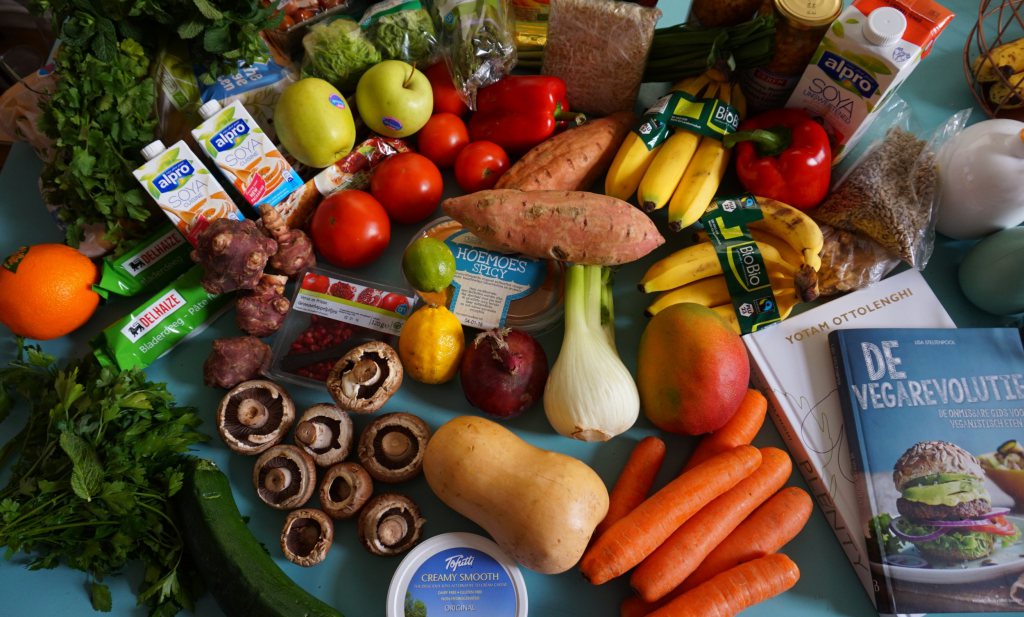The environmental footprint of our food systems is increasing. Food production worldwide is responsible for a third of global greenhouse gases (GHGs) emissions and requires about half of the world’s land area for crop and pastureland. Other important resources, such as water and energy, are exploited in the process. If change does not happen, these impacts are only set out to increase, in the face a growing global population, according to projections by the United Nations (UN), the world population is projected to increase up to 8.5 billion by 2030, and almost up to 10 billion by 2050.
These trends pose our current systems with a double challenge: addressing food security, while shifting to sustainable systems of food production and consumption.
The case for a plant-based shift
While the data is worrying, there is hope for change. In its last report, the IPCC has recommended a shift towards plant-based diets. It has become increasingly well-established in the scientific community that the wide-spread adoption of plant-based diets would help societies reduce their environmental footprint, while addressing food security. Plant-based diets are less land, energy, and resource intensive compared to animal-based diets. The differences are striking. For example, animal-based food production emits double the amount of emissions compared to plant-based food production.
Dietary choices not only have a strong impact on the environment, but on human health. Diets relying more on plant-based sources of proteins, rather than on animal sources of protein, have benefits for consumers’ health. Many studies have found that relative to conventional omnivorous diets high in animal-based products, the Mediterranean, pescatarian, and vegetarian diets reduce the risk of cancer, coronary heart disease and type II diabetes. These alternative diets all have in common a higher consumption of fruits, vegetables, nuts and pulses and low meat consumption.
In sum, food items of which a low-level consumption is recommended for health reasons, are also the ones with greater soil, water, land, and carbon footprints.
The discussion on the differential impacts of foods is centered around protein consumption. While all food production has important environmental impacts, proteins are the nutrient group that has the strongest implications for environmental sustainability, particularly for biodiversity loss, nitrogen cycle disruption and carbon cycle disruption.
But what are the reasons behind such a grim scenario? The first reason is the overconsumption and production of proteins in the Western world. It is estimated that the average protein intake in many Western countries is 150-200% more than the recommended values for human health. Secondly, consumers over-rely on animal-based rather than plant-based sources of protein, which combine high nutritional value with a low environmental footprint.
For all these reasons, scholars, policymakers and civil society alike, are calling for a broader transformation towards a food system less reliant on animal-based sources of protein. These systems changes are usually referred to as protein transitions.
The case for a plant-based shift
While the data is worrying, there is hope for change. In its last report, the IPCC has recommended a shift towards plant-based diets. It has become increasingly well-established in the scientific community that the wide-spread adoption of plant-based diets would help societies reduce their environmental footprint, while addressing food security. Plant-based diets are less land, energy, and resource intensive compared to animal-based diets. The differences are striking. For example, animal-based food production emits double the amount of emissions compared to plant-based food production.
Dietary choices not only have a strong impact on the environment, but on human health. Diets relying more on plant-based sources of proteins, rather than on animal sources of protein, have benefits for consumers’ health. Many studies have found that relative to conventional omnivorous diets high in animal-based products, the Mediterranean, pescatarian, and vegetarian diets reduce the risk of cancer, coronary heart disease and type II diabetes. These alternative diets all have in common a higher consumption of fruits, vegetables, nuts and pulses and low meat consumption.
In sum, food items of which a low-level consumption is recommended for health reasons, are also the ones with greater soil, water, land, and carbon footprints.
Proteins are the nutrient group that has the strongest implications for environmental sustainability, particularly for biodiversity loss, nitrogen cycle disruption and carbon cycle disruptionThe call for a protein transition
The discussion on the differential impacts of foods is centered around protein consumption. While all food production has important environmental impacts, proteins are the nutrient group that has the strongest implications for environmental sustainability, particularly for biodiversity loss, nitrogen cycle disruption and carbon cycle disruption.
But what are the reasons behind such a grim scenario? The first reason is the overconsumption and production of proteins in the Western world. It is estimated that the average protein intake in many Western countries is 150-200% more than the recommended values for human health. Secondly, consumers over-rely on animal-based rather than plant-based sources of protein, which combine high nutritional value with a low environmental footprint.
For all these reasons, scholars, policymakers and civil society alike, are calling for a broader transformation towards a food system less reliant on animal-based sources of protein. These systems changes are usually referred to as protein transitions.
Susanna Potestio is Italian (Palermo). She graduated in Political Science at Leiden University in the Netherlands. Currently she is working on a thesis to get her master's degree at Utrecht University (the Netherlands) in Environmental Science. She will share her findings with Agrifoodnetworks.org's community.
Related



